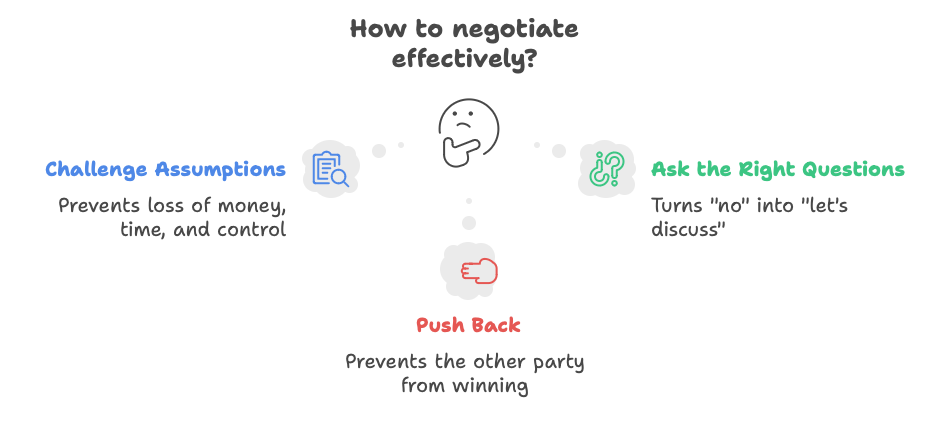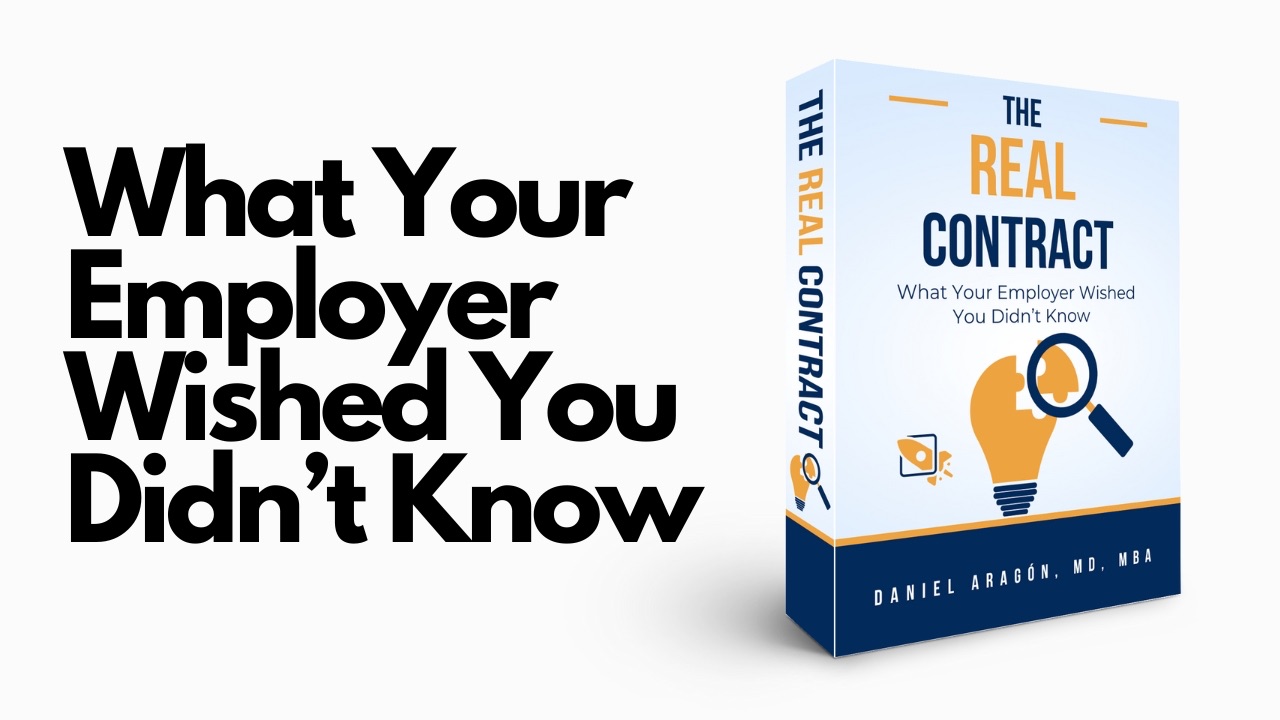
What Do You Know About Negotiating Your Physician Contract?
The ideas for this article were shamelessly stolen (like a true artist) from Exactly What To Say by Phillip M Jones. If you’re a physician looking to improve your contract negotiation skills, I highly recommend giving it a read.
Hardcover | Paperback | Kindle | Audiobook
Key Takeaways
✅ You think you know what’s negotiable. You probably don’t.
✅ Hospitals expect you to push back. If you don’t, they win.
✅ The right question can turn a “no” into a “let’s discuss.”
✅ If you don’t challenge assumptions, you’ll lose money, time, and control.
You Think You Know, But Do You Really?
How many times have you heard this?
💬 “Physician contracts aren’t negotiable.”
💬 “Salaries are standard. There’s no wiggle room.”
💬 “The non-compete is in every contract. Everyone signs it.”
Sounds official, right? Like something you shouldn’t question. But what do you actually know about how these contracts work?
- Have you asked how your salary compares to MGMA benchmarks?
- Do you know what happens if you break the non-compete?
- Has anyone explained how bonuses are structured - and if they’re realistic?
Or are you just assuming it’s all set in stone?
The Trick That Stops Employers from Shutting You Down
If you’ve ever tried pushing back on a contract and gotten a flat “no”, it probably felt like a dead end. But it wasn’t. You just didn’t ask the right question.
Instead of arguing, make them explain their position.
🚨 Instead of saying:
❌ “I want a higher salary.”
✅ Ask: “What do you know about how this offer compares to market rates?”
🚨 Instead of saying:
❌ “This non-compete is too restrictive.”
✅ Ask: “What do you know about how this clause has impacted past employees?”
📌 Why does this work?
- It forces them to justify their stance.
- It makes them think instead of react.
- It shifts the power - now they’re on defense.
Why Most Physicians Lose the Negotiation Before It Even Starts
Most people, especially doctors, are afraid to sound unprepared. No one wants to ask a question and risk looking like they don’t know something they should know.
That fear? That’s exactly what hospitals rely on.
📌 So what happens?
- You assume the offer is fair.
- You trust that benefits are standard.
- You let someone else decide what your time and skills are worth.
And then five years later, you find out your colleague (same specialty, same hospital, same level of experience) makes $30,000 more than you.
Would’ve been nice to know earlier, right?
The Right Questions to Ask Before Signing Anything
Most physicians focus on what they want. Higher salary. Better schedule. Less call. That’s good, but it’s not how you win the negotiation.
You win by making them prove why their offer is fair.
📌 Try these:
✅ “What do you know about how physician compensation has changed in the last five years?”
✅ “What do you know about how other hospitals structure their RVU bonuses?”
✅ “What do you know about how this contract protects me in case of termination?”
They might dodge. They might act like they don’t know. That’s fine. Just follow up with:
“If you don’t know, who does?”
Now they have to find you an answer.
What Happens If They Push Back?
Most hospitals won’t admit they’re lowballing you. They’ll use corporate language to brush you off.
🚨 What they say:
❌ “This is a standard contract.”
❌ “This is how we do it for everyone.”
❌ “We don’t negotiate on that.”
🚨 What you say:
✅ “I understand that’s the usual approach, but what do you know about physicians who have successfully negotiated this?”
✅ “If this is standard, what do you know about how other organizations are handling it differently?”
✅ “Has this always been the case, or what do you know about past negotiations?”
📌 Why does this work?
- It challenges their authority without being aggressive.
- It keeps the conversation open instead of shutting it down.
- It forces them to acknowledge alternatives.
How to Negotiate Without Sounding Pushy
Still worried about rocking the boat? Try this:
📌 Step 1: Show curiosity, not confrontation.
✅ Say: “What do you know about how other hospitals in this region structure their signing bonuses?”
📌 Step 2: Make them explain their own offer.
✅ Say: “I see that my base salary is X. What do you know about how this compares to MGMA percentiles?”
📌 Step 3: Give them a way out, but keep pushing.
✅ Say: “I get that you might not have the info right now. Who on your team could help clarify this?”
Now you’re not arguing—you’re making them do the work.
The Best Time to Ask These Questions
📌 When should you challenge your contract?
✅ Before you sign. That’s your leverage point.
✅ When they give vague answers. That’s your chance to dig deeper.
✅ When they say something sounds “standard.” That’s your red flag to push back.
📌 When NOT to ask?
❌ After you’ve signed. Too late.
❌ After another colleague has already negotiated. Now you’re playing catch-up.
Don’t Assume. Ask.
How many physicians do you think signed contracts without ever questioning the details?
Too many.
And how many of them, years later, found out they were underpaid, overworked, or locked into a terrible deal?
Also too many.
So, what do you know about how your contract stacks up?
Because if you don’t ask, you’ll never know what you missed.







